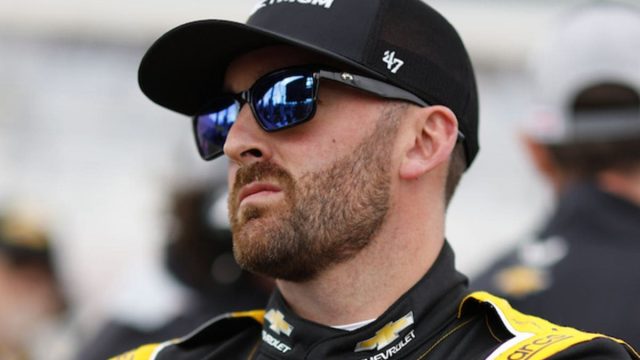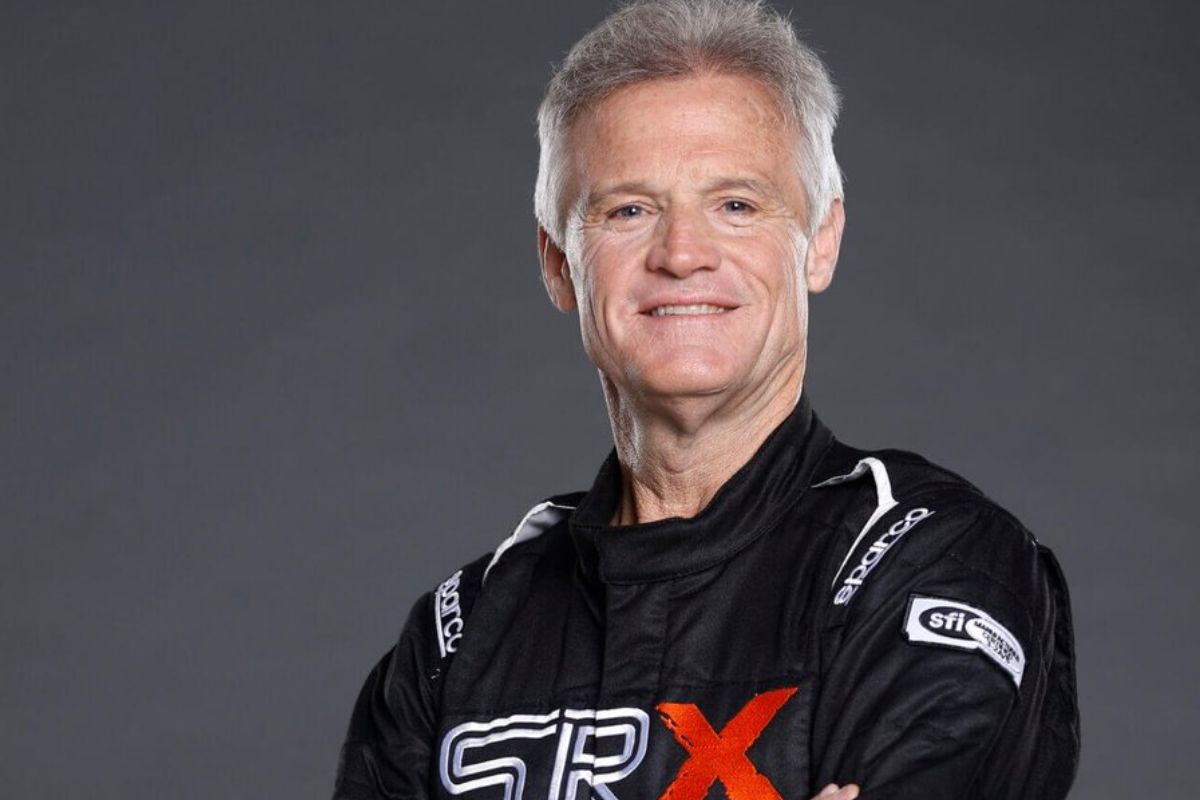NASCAR’s Verdict Delay on Austin Dillon Controversy: The recent delay in NASCAR’s verdict regarding the Austin Dillon controversy has sparked considerable criticism from former driver Kenny Wallace, who argues that such procrastination jeopardizes the sport’s integrity. Wallace contends that the lack of a timely resolution not only diminishes NASCAR’s credibility but also fails to adequately address the underlying issues of aggressive racing culture. As questions mount about the sufficiency of NASCAR’s response—particularly the suspension of Dillon’s spotter—it becomes crucial to examine the broader implications of this delay on the sport’s future and its relationship with fans.
Key Highlights
- Kenny Wallace criticized NASCAR’s slow response to the Austin Dillon controversy, viewing it as a missed chance to uphold the sport’s integrity.
- Wallace emphasized that NASCAR’s delay could diminish credibility and increase fan frustration regarding the handling of race conduct issues.
- He highlighted the need for urgent decision-making, comparing NASCAR’s response to a leisurely pace that fails to address critical concerns.
- Wallace deemed the suspension of Dillon’s spotter insufficient to tackle the aggressive driving culture prevalent in NASCAR.
- He called for a comprehensive approach to enforce behavioral standards in the sport, rather than inconsistent penalties.
Controversy Surrounding Austin Dillon’s Victory
Frequently, the outcome of a race can provoke considerable debate, as evidenced by the controversy surrounding Austin Dillon‘s recent victory at the Cook Out 400 in Richmond. Dillon’s aggressive driving style culminated in a chaotic finish that has since drawn scrutiny from fans and analysts similarly. On the final lap, Dillon’s tactic sent fellow competitor Joey Logano crashing into the wall, subsequently involving Denny Hamlin in the ensuing melee. This incident has ignited discussions regarding the ethics of aggressive racing and the potential ramifications for driver conduct.
The nature of NASCAR racing inherently invites tension and rivalry; however, Dillon’s actions have led to questions about the balance between competitive aggression and responsible driving. Critics argue that such aggressive moves can compromise the safety of drivers and the integrity of the sport.
Despite the contentious circumstances, NASCAR officials permitted Dillon to celebrate his victory in Victory Lane, a decision that has been met with mixed reactions. The delay in NASCAR’s review of the incident has only intensified the debate, raising concerns about consistency in officiating and the potential for favoritism.
As the organization assesses the situation, the implications of Dillon’s victory extend beyond a single race; they challenge the broader narrative of what constitutes fair play within NASCAR. As fans await a verdict, the incident serves as a crucial moment for discussions about race strategy, driver accountability, and the evolving nature of competition in the sport.
Kenny Wallace’s Criticism of NASCAR’s Delay
Kenny Wallace has taken aim at NASCAR’s delayed response to the controversy surrounding Austin Dillon’s victory, arguing that the organization squandered an opportunity to address the issue promptly. In a pointed critique, Wallace emphasized that the sanctioning body should have acted swiftly, asserting that delays only serve to exacerbate the situation. He stated, “Missed opportunity by NASCAR. If they wanted to put an end to this, they’d have done it Monday night.”
“Missed opportunity by NASCAR. If they wanted to put an end to this, they’d have done it Monday night. Okay, you can’t do it two or three days later. This is wrong the way they go about this.” – Wallace
Wallace’s commentary suggests a growing frustration among stakeholders who seek timely resolutions in the world of motorsports. The implications of such delays extend beyond the immediate controversy and could undermine the integrity of the sport.
Wallace further demonstrated his point by comparing NASCAR’s delayed decision-making to a casual, leisurely approach: “You can’t come out two or three days later and say, ‘Here, let me get done smoking my cigar.’” This metaphor captures the urgency required in addressing controversies that shape public perception and fan loyalty. Wallace’s insights call for a reevaluation of NASCAR’s response protocols to maintain the sport’s integrity.
“You can’t do that. You can’t come out two or three days later and say, ‘Here, let me get done smoking my cigar. Here’s what we’re going to do now that we’ve thought about it.’ He’s already been in Victory Lane.”- Wallace
Wallace’s Take on NASCAR’s Response to Spotter
While NASCAR’s decision to suspend Austin Dillon’s spotter for his inflammatory comments may seem like a decisive action, it has drawn sharp criticism from observers like Wallace, who argues that the response lacks depth and fails to address the broader implications of such behavior.
Wallace contends that merely suspending the spotter does not sufficiently address the culture of aggression that can permeate the sport.
Wallace emphasized the significance of the communication between the spotter and Dillon, stating, “NASCAR comes out and suspends the spotter because he verbally said, ‘Wreck them, wreck them.’ Okay, right there what you did is incriminate yourself.”
“Y’all have taken it too far…The reason they missed this opportunity is that if they really wanted to do something, they’d have done it right then. You can’t let him go to Victory Lane and then take the win away. So the win’s going to stand.”
“NASCAR comes out and suspends the spotter because he verbally said, ‘Wreck them, wreck them.’ Okay, right there, what you did is incriminate yourself. You incriminated yourself verbally all over the radio.” – Wallace
This perspective highlights several critical points:
- Cultural Context: The racing environment often encourages aggressive tactics; punishing one individual may not deter such behavior.
- Communication Accountability: The nature of radio communications can influence driver actions and race dynamics.
- Long-term Implications: A singular suspension may not address systemic issues that allow such comments to flourish.
- Fan Perception: The inconsistency in enforcement may alienate fans who expect a more robust response to unsportsmanlike conduct.
NASCAR’s Review of the Richmond Finish
NASCAR’s evaluation of the Richmond finish has become a focal point in evaluating the integrity of race conduct, particularly in consideration of Austin Dillon’s recent actions. Following the race, NASCAR’s Senior Vice President of Competition, Elton Sawyer, indicated that Dillon’s behavior was “awfully close to the line,” suggesting that the organization is taking this matter seriously.
“It happened fast, but I would say if you look at that, in my view, that’s getting right up really close to the line.” -Sawyer
The decision-making process involves a thorough review of all available footage, audio, and video, emphasizing NASCAR’s commitment to maintaining fair play within the sport.
Historically, NASCAR has refrained from rescinding race victories but has imposed penalties for deliberate wrecks. This precedent complicates the current situation, as Dillon’s actions could be interpreted as crossing the boundary of acceptable conduct. Sawyer’s comments imply a potential shift in NASCAR’s approach to race integrity, stating, “That’s not to say that going forward this wouldn’t start to set a precedent.”
“Historically, that hasn’t been our DNA to take race (wins) away, but that’s not to say that going forward this wouldn’t start to set a precedent, or do we have to look at it.” – Sawyer
This acknowledgment of the potential for evolving standards reflects a broader concern about how actions on the track resonate with the integrity of the sport.
The implications of this review extend beyond the immediate circumstances of the Richmond finish; they may inform future guidelines and disciplinary frameworks. As NASCAR deliberates, the racing community watches closely, aware that the outcomes could redefine expectations for driver behavior and race strategy in the competitive landscape.
News in Brief: NASCAR’s Verdict Delay on Austin Dillon Controversy
The delayed verdict regarding Austin Dillon’s controversial victory highlights notable concerns about NASCAR’s responsiveness and integrity. Kenny Wallace’s critique emphasizes the necessity for a more rigorous approach to addressing aggressive racing behaviors, rather than relying solely on punitive measures for individuals. This situation not only reflects the challenges NASCAR faces in maintaining credibility with fans but also stresses the importance of establishing consistent behavioral standards to improve the sport’s comprehensive integrity and reputation.
ALSO READ: Kevin Harvick Slams Austin Dillon: NASCAR Must Act to Save the Sport from Bad Influence



